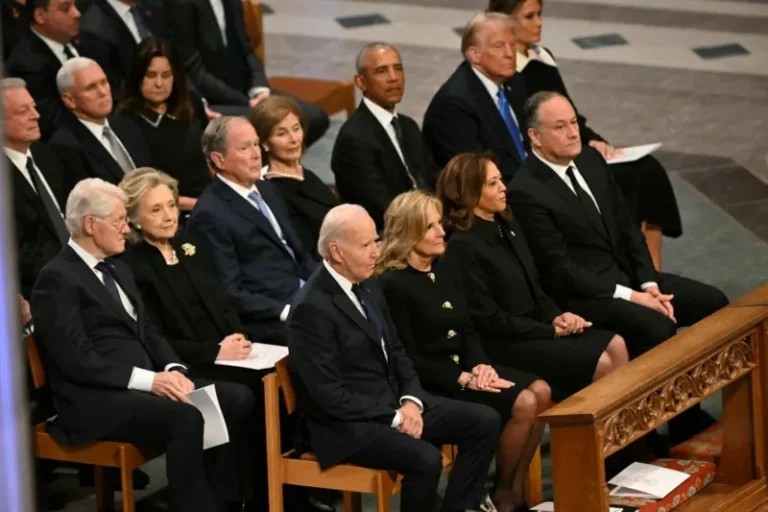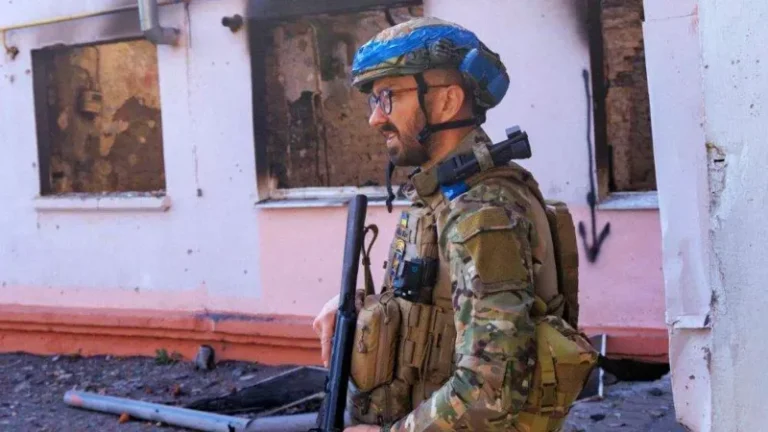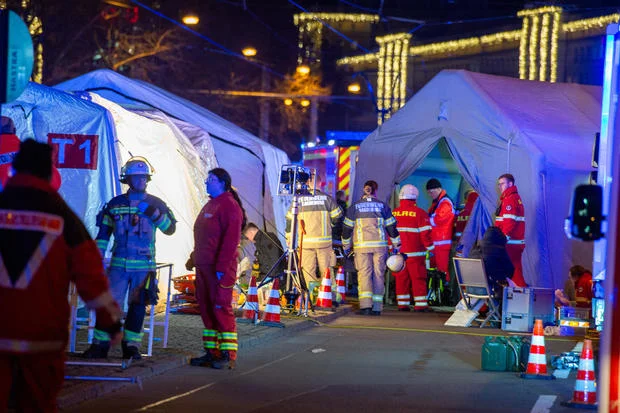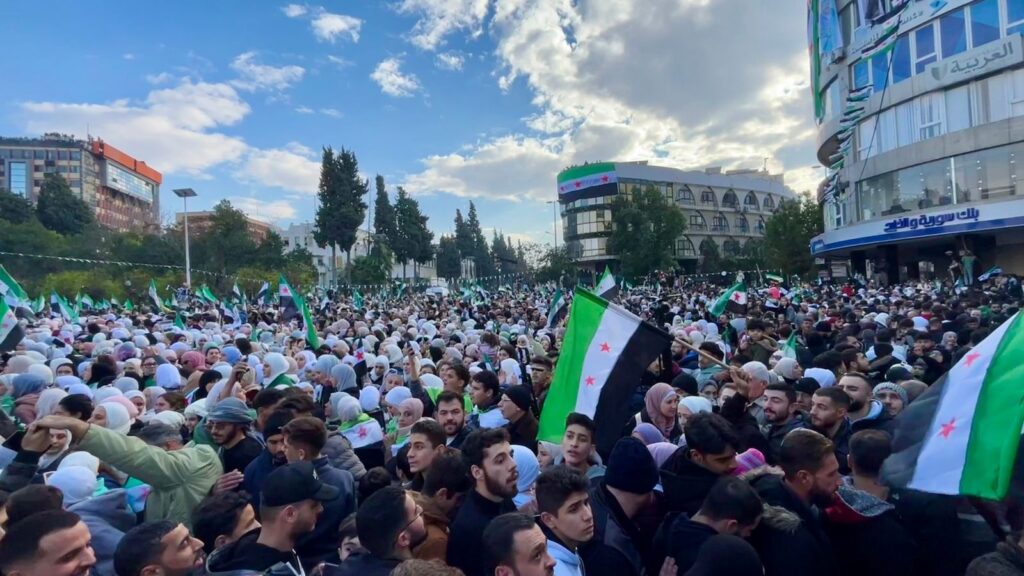
“In Homs, residents shared that ‘everyone is scared,’ yet the prospect of Bashar al-Assad’s downfall has sparked new hope for a brighter future and the possibility of ‘living together in peace.’
As I walked through the streets of Homs, I could barely take ten steps without being stopped by someone eager to share their thoughts. Many expressed their joy that this day had finally arrived, but also their sorrow for the loved ones they had lost.
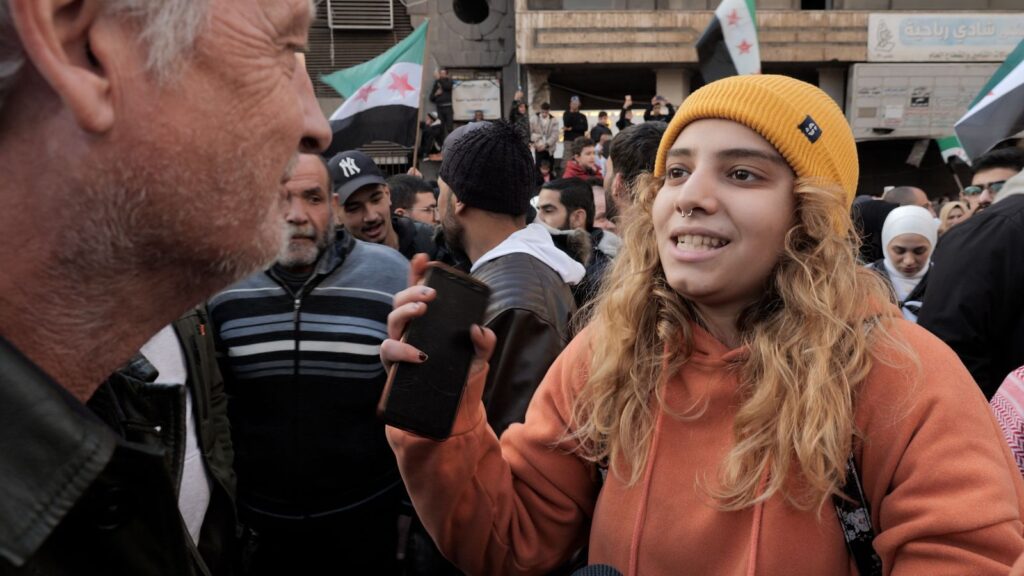
“For over 50 years, nobody has been able to speak openly; now, they can’t stop talking,” quipped Sky producer Jeehad Jneid as we made our way through the massive crowd. We had joined thousands of people flooding the streets of Homs, heading toward the ‘Clock Tower’—the heart of the city and the site where some of the earliest protests against Bashar al-Assad had erupted in 2011. The square was filled with men, women, and children, all overseen by revolutionary fighters perched on rooftops and at nearby checkpoints, where they ensured that no one was carrying weapons. Guns were strictly prohibited.
Within the crowd, there was some segregation—sections for men, women, and families. But Homs is a conservative city, and on this day, no one seemed to mind. This was their ‘Victory Day,’ a moment of freedom shared by everyone, regardless of age or gender. Haia Farhan, a local resident, shared her overwhelming joy: “I can’t even describe what’s happening right now. It’s massive, huge happiness. We’re all experiencing this together.”
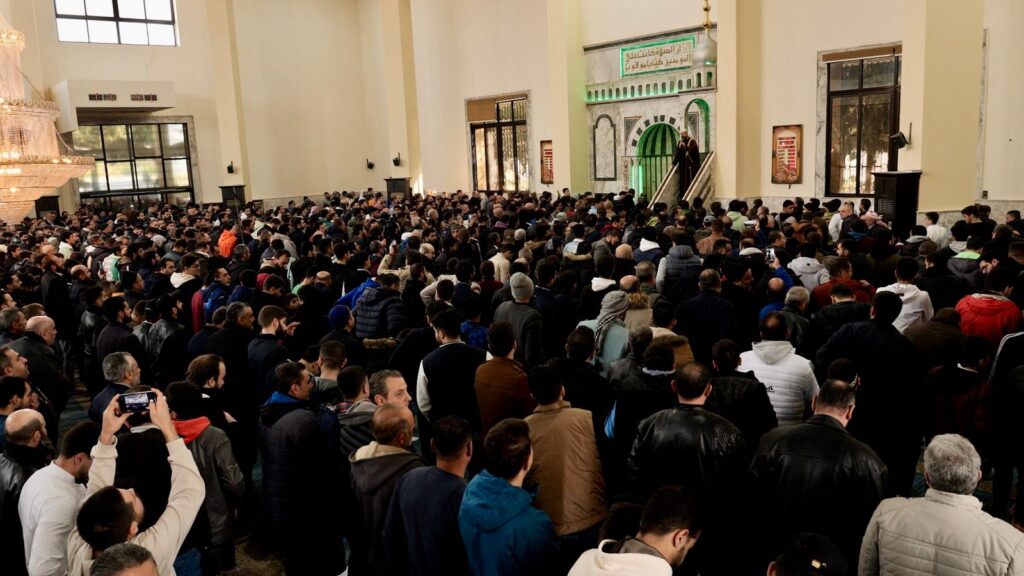
Though there were nerves about the future, people were overjoyed that Assad and his government were gone. “I see the future, and it’s looking very bright,” said one woman. “Yes, everyone is scared, it’s a scary time, but I really hope it’s bright.”
At the nearby Omar bin Khattab mosque, the crowds began arriving long before Friday prayers. The mosque was packed, with worshippers spilling onto the streets to pray and listen to the sermon. Sheikh Mahmoud Dalati, the spiritual leader of the uprising in Homs, had returned from exile to deliver a message of unity, calling for peace, law and order, and the use of the courts for justice, rather than revenge.
He urged patience with the new government, acknowledging that it would take time to restore basic services like electricity and water. “It’s like moving into a new home,” he explained in his sermon. “You need at least three months to settle in.”
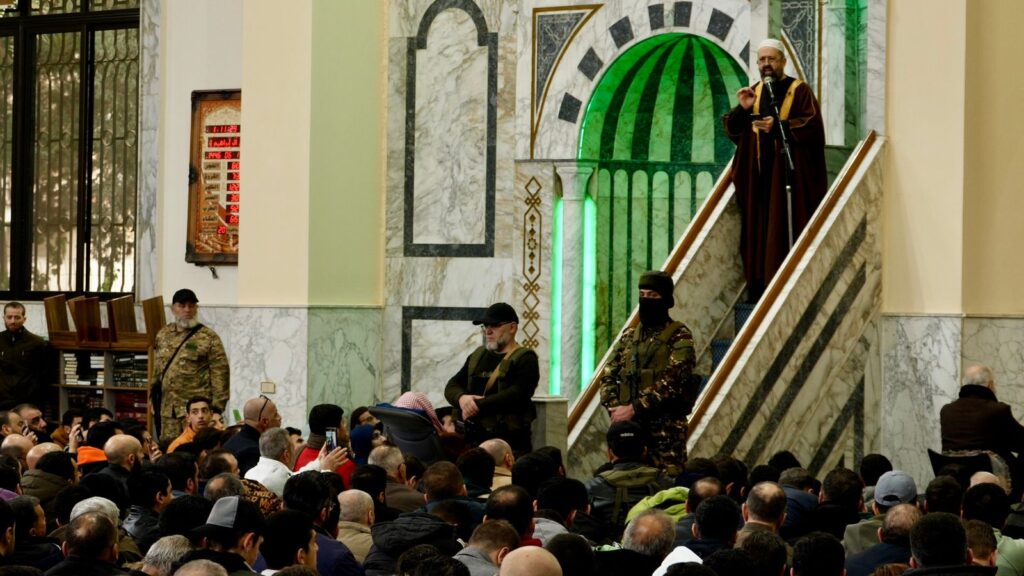
Nearly everyone I spoke to echoed a common desire: an end to division and violence, and a Syria where all faiths could live together peacefully. Taha Tadmori, a man who had lost two brothers to Assad’s brutal regime, shared his vision: “All kinds of people, all kinds of religion, can live together in peace. We can rebuild this country.”
While Syria’s future remains uncertain, today was a day for celebration—a day of unity and pure happiness for its people.

